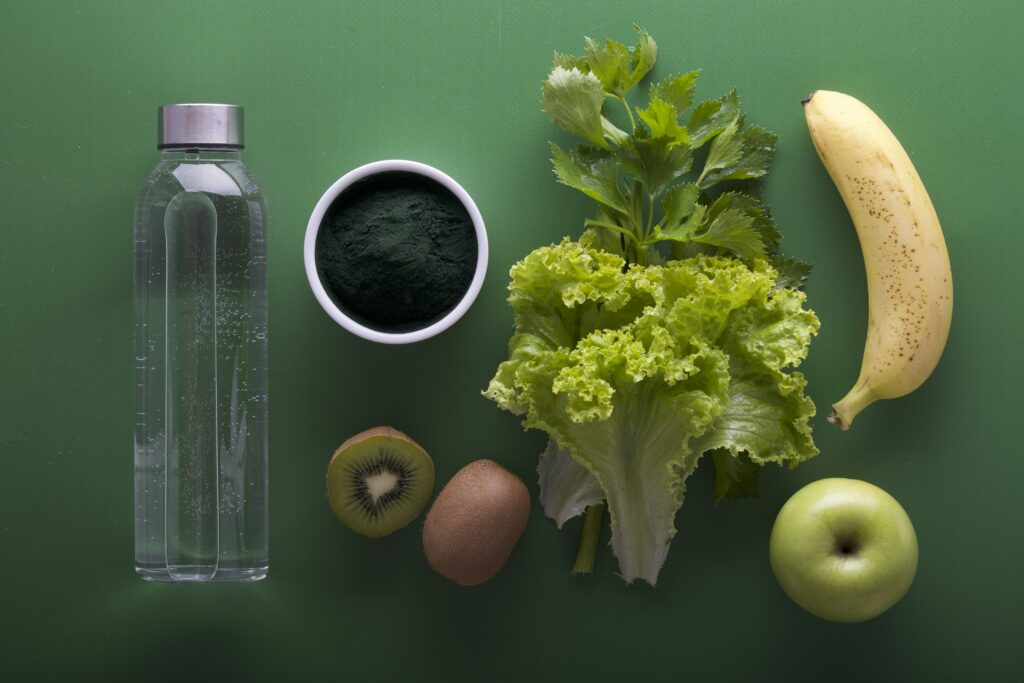Organic products have become increasingly popular in recent years, but what exactly are the benefits of using them? From skincare to food choices, incorporating organic products into our daily lives can have a multitude of advantages. Whether it’s reducing exposure to harmful chemicals, supporting sustainability, or enjoying enhanced flavor and nutritional value, the advantages of going organic are numerous and wide-ranging. In this article, we will explore the various benefits of using organic products, giving you a comprehensive understanding of why they are an excellent choice for both your health and the environment.

Health Benefits
Reduced exposure to harmful chemicals
Using organic products significantly reduces the exposure to harmful chemicals. Conventional products often contain synthetic fertilizers, pesticides, and herbicides that can have detrimental effects on our health. These chemicals have been linked to various health issues such as allergies, respiratory problems, hormonal imbalances, and even certain types of cancers. By choosing organic products, we can minimize our exposure to these harmful substances and protect ourselves from their potential long-term effects.
Lower risk of allergies and skin irritations
Organic products are known for being gentle on the skin, reducing the risk of allergies and skin irritations. Conventional products can contain artificial fragrances, dyes, and preservatives that can trigger allergic reactions or irritate sensitive skin. Organic alternatives, on the other hand, are made from natural ingredients that are less likely to cause adverse reactions. By opting for organic skincare and household products, we can maintain healthier, happier skin without worrying about any harmful side effects.
Increased nutrient content
One of the key health benefits of organic products is their higher nutrient content. Organic fruits, vegetables, and animal products are grown or raised without synthetic fertilizers, hormones, or genetically modified organisms (GMOs). As a result, they tend to have higher levels of essential nutrients such as vitamins, minerals, and antioxidants compared to their conventional counterparts. By consuming organic foods, we can ensure that our bodies receive all the necessary nutrients for optimal health and wellbeing.
No artificial additives or preservatives
Organic products are free from artificial additives and preservatives, making them a healthier choice. Many conventional products, especially processed foods, contain artificial colors, flavors, and preservatives that are added to extend shelf life or enhance taste. These additives may have negative health effects such as hyperactivity in children, allergic reactions, and even long-term health issues. By choosing organic alternatives, we can avoid these artificial substances and enjoy purer, more natural products.
Environmental Benefits
Promotes sustainable agriculture
Organic products promote sustainable agriculture by embracing environmentally friendly farming practices. Organic farmers use natural methods to nurture the soil, prevent erosion, conserve water, and promote biodiversity. They focus on crop rotation, composting, and natural pest control, rather than relying on synthetic chemicals. This approach helps to maintain the long-term fertility and health of the land, reducing the need for harmful interventions and preserving the quality of our environment.
Preserves soil fertility
Organic farming methods prioritize the preservation of soil fertility. By avoiding the use of synthetic fertilizers and relying on natural sources of nutrients, organic farmers help maintain the balance of microorganisms and minerals necessary for healthy soil. This crucial aspect of organic farming ensures that the land can continue to produce high-quality crops year after year, without depleting its nutrient content or harming beneficial organisms.
Protects water quality
Organic farming plays a vital role in protecting water quality. Unlike conventional farming, which employs chemical-intensive methods that can result in runoff and contamination of waterways, organic farming practices prioritize the preservation of water resources. By avoiding the use of synthetic pesticides and fertilizers, organic farmers help prevent water pollution, ensuring cleaner and safer water for both humans and aquatic life.
Minimizes air pollution
Organic farming practices contribute to minimizing air pollution in several ways. They do not rely on synthetic pesticides, which can release harmful chemicals into the air during application. Additionally, organic farmers often prioritize manual or mechanical weed control methods rather than using fuel-powered machinery, reducing carbon emissions. By choosing organic products, we are supporting a cleaner and more sustainable approach to agriculture, thus helping to combat air pollution.

Supports Local Economies
Boosts local farmers and businesses
Choosing organic products directly benefits local farmers and businesses. Organic farming requires more labor-intensive and often smaller-scale practices compared to conventional farming. By purchasing organic products, we support local farmers who have committed to environmentally friendly and sustainable methods. This support contributes to the growth and viability of local economies, as it helps small-scale farmers continue their vital work and promotes the production of organic goods within our communities.
Promotes fair trade practices
Organic products often align with fair trade practices, ensuring that farmers and workers receive fair wages and good working conditions. Many organic certification programs have strict standards when it comes to social and labor practices. By purchasing organic goods with fair trade certifications, we can be confident that our choices are not only promoting sustainable agriculture but also contributing to a more equitable and ethical global trade system.
Animal Welfare
No animal testing
One significant advantage of organic products is that they are not tested on animals. Conventional products, such as cosmetics and household cleaners, often undergo animal testing to ensure their safety. This practice can be both unethical and cruel, subjecting animals to unnecessary suffering. Organic products, on the other hand, are produced using methods that prioritize the wellbeing of animals while still delivering high-quality and effective results.
Cruelty-free production
In addition to avoiding animal testing, organic products are often produced in a cruelty-free manner. Organic farming practices prioritize the humane treatment of livestock, ensuring they have access to open spaces, pasture, and suitable living conditions. By choosing organic meat, dairy, and other animal-derived products, we are supporting ethical farming practices that prioritize the welfare and wellbeing of animals, reducing their suffering.

Better Taste and Quality
Enhanced flavor
Organic products are often celebrated for their enhanced flavor compared to conventional alternatives. This superior taste can be attributed to the natural and healthy growth conditions of organic crops. Without the presence of synthetic fertilizers, pesticides, and herbicides, organic plants are allowed to develop their unique flavors, resulting in richer and more vibrant taste profiles. Choosing organic means treating our taste buds to a culinary experience that is unmatched by conventionally grown foods.
Higher quality ingredients
Organic products are made using higher quality ingredients, which further contributes to their superior taste and overall quality. Organic farming practices prioritize the use of natural fertilizers and pest control methods, resulting in healthier crops. Additionally, organic animal products come from animals that are raised without the use of hormones or antibiotics, ensuring that the end product is of higher quality and more beneficial to our health.
Gentler on the Skin
Reduced skin irritation
One of the notable benefits of using organic skincare products is the reduced risk of skin irritation. Conventional cosmetic products often contain synthetic fragrances, preservatives, and harsh chemicals that can irritate and damage the skin. Organic skincare, on the other hand, excludes these potentially harmful ingredients, using natural and gentle alternatives instead. By opting for organic skincare, we can pamper our skin with products that are kind and gentle, minimizing the risk of irritation and promoting healthier skin.
Less risk of allergic reactions
Organic skincare products are particularly beneficial for individuals with sensitive skin or allergies. The absence of artificial fragrances, dyes, and preservatives in organic formulations reduces the risk of allergic reactions. Many organic skincare brands also utilize plant-based ingredients known for their soothing and anti-inflammatory properties, further reducing the likelihood of adverse reactions. By choosing organic skincare, we can nourish and protect our skin, even if we have specific sensitivities or allergies.

Reduced Antibiotic Resistance
Less exposure to antibiotics in food
Consuming organic animal products significantly reduces our exposure to antibiotics. In conventional farming, animals are often given antibiotics to promote growth and prevent disease outbreaks in crowded and unsanitary conditions. This practice contributes to the rise of antibiotic resistance, a global health concern. Organic animal products, however, are raised without the routine use of antibiotics, helping to combat the spread of antibiotic-resistant bacteria and safeguarding the effectiveness of these important medications for human use.
Long-Term Health Benefits
Reduced risk of chronic diseases
The long-term health benefits of consuming organic foods cannot be understated. Organic products are free from synthetic pesticides, herbicides, and genetically modified organisms (GMOs) that have been linked to various chronic diseases. By minimizing our exposure to these potentially harmful substances and consuming foods with higher nutrient content, we can lower the risk of developing conditions such as cancer, heart disease, diabetes, and neurodegenerative disorders. Choosing organic is not only an investment in our current health but also in our long-term wellbeing.
Improved overall health
Opting for organic products can lead to improved overall health. By reducing exposure to harmful chemicals, enjoying higher nutrient content, and supporting sustainable farming practices, we are providing our body with the most natural and wholesome ingredients. A diet rich in organic fruits, vegetables, and animal products promotes better digestion, boosts the immune system, and supports optimal organ function. When combined with an active lifestyle and other healthy habits, choosing organic becomes a powerful tool for improving and maintaining our overall wellbeing.

Supports Sustainable Farming Practices
Decreased use of synthetic fertilizers and pesticides
One of the core principles of organic farming is the decreased use of synthetic fertilizers and pesticides. By relying on natural alternatives, such as compost and beneficial insects, organic farmers reduce the amount of harmful chemicals released into the environment. This approach not only protects our health but also safeguards the delicate balance of ecosystems and promotes the long-term sustainability of agriculture.
Preservation of biodiversity
Organic farming practices contribute to the preservation of biodiversity. By promoting a healthier environment for crops, organic farmers also create habitats for various beneficial species, including insects, birds, and microorganisms. Unlike conventional farming, which often relies on monocultures that can be detrimental to biodiversity, organic farming methods prioritize crop rotation, companion planting, and the preservation of natural habitats. By supporting organic agriculture, we play a part in preserving the delicate web of life on our planet.
Positive Impact on Climate Change
Reduces greenhouse gas emissions
Choosing organic products can have a positive impact on climate change by reducing greenhouse gas emissions. Organic farming methods prioritize the use of organic matter, such as compost, which helps sequester carbon in the soil. Additionally, by avoiding synthetic fertilizers and pesticides, organic farming minimizes the use of energy-intensive manufacturing processes and the associated carbon emissions. By opting for organic, we actively contribute to reducing our carbon footprint and mitigating the effects of climate change.
Minimizes carbon footprint
Supporting organic farming practices helps minimize our carbon footprint. By opting for locally-produced organic goods, we reduce the carbon emissions associated with long-distance transportation. Organic farming also tends to prioritize sustainable energy sources, such as solar and wind power, further reducing greenhouse gas emissions. By choosing organic products and supporting sustainable agriculture, we are actively taking steps to protect our environment, minimize our impact on the planet, and build a healthier, more sustainable future.
In conclusion, the benefits of using organic products are vast and varied, spanning from our individual health to the health of the planet. By choosing organic, we can reduce our exposure to harmful chemicals, lower the risk of allergies and skin irritations, enjoy higher nutrient content, and avoid artificial additives and preservatives. Additionally, organic products promote sustainable agriculture, preserve soil fertility, protect water quality, and minimize air pollution. Furthermore, choosing organic supports local economies, boosts fair trade practices, and prioritizes animal welfare. Organic products also offer better taste and quality, gentler care for our skin, and reduced antibiotic resistance. Moreover, they contribute to long-term health benefits, support sustainable farming practices, and have a positive impact on climate change. Overall, embracing organic products is not only a decision in favor of a healthier and more sustainable lifestyle but also a way to make a positive and lasting impact on our own wellbeing and the world around us.




